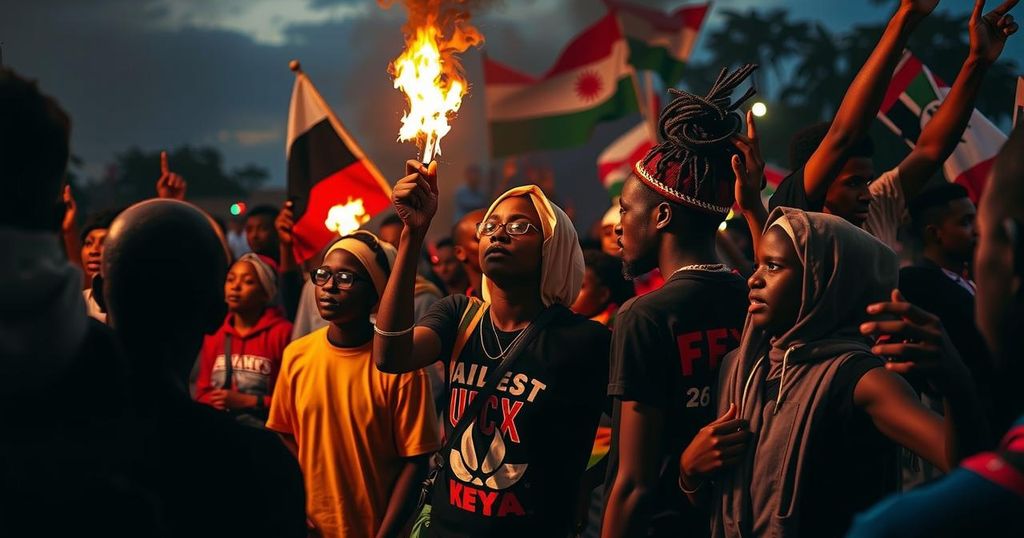The Rise of Youth-Led Protests Across Africa: A Call for Change

Youth-led protests across Africa are on the rise, with demonstrators in Kenya recently demanding the withdrawal of a controversial finance bill. This surge in activism highlights growing frustrations towards aging leadership amid police brutality and calls for reforms. Similar movements are emerging in Senegal, Uganda, Mozambique, and Zimbabwe, showcasing a collective push for social justice and democratic rights among young people throughout the continent.
Africa is witnessing a surge in youth-led protests, highlighting the voices of its predominantly young population. Recent demonstrations in Kenya, triggered by a controversial finance bill involving tax hikes, attracted significant attention with protests led primarily by Generation Z and millennials. The unrest comes amidst broader concerns regarding police brutality, as over 39 protesters lost their lives, prompting international scrutiny of the government’s security response. Recent years have seen similar protests across the continent, showcasing a growing discontent with aging political leadership and calls for systemic change. In Senegal, for instance, youth mobilized aggressively against a postponed presidential election, highlighting their dedication to fostering democracy. Activism in Uganda against a major oil pipeline underscores the interconnectivity and regional influence of these movements. The tragic death of politically vocal Mozambican rapper Azagaia invoked widespread protests against social injustice and governmental corruption, further illuminating the struggles faced by young Africans today. Meanwhile, in Zimbabwe, students have consistently rallied against political repression, showcasing the ongoing fight for civil rights and democratic governance throughout the continent.
These movements reflect a significant generational shift in Africa, characterized by younger citizens challenging oppressive systems and advocating for their rights and futures. The frustrations of youth against entrenched political systems are palpable, yet they continue to courageously mobilize for change, utilizing social media and grassroots organizing. Other nations within Africa may take notice of these movements, potentially inspiring further activism as the youth assert their influence on the political landscape.
The emergence of youth-led protests in Africa reflects a broader struggle for democracy and social justice, with roughly 70% of the population under the age of 30. This demographic reality has fostered significant discontent towards the continent’s aging leadership, often perceived as unresponsive to the aspirations of younger generations. Historical contexts, such as the #EndSARS protests in Nigeria and #FeesMustFall in South Africa, illustrate an ongoing pattern of activism. These movements are not isolated incidents but rather form part of a tributary of youth-led efforts throughout the continent, motivated by similar issues such as corrupt governance, economic hardship, and social injustice, thereby consolidating the narrative of protest as a tool for change.
In conclusion, youth-led protests in Africa signify a growing wave of activism that is reshaping the political landscape across the continent. The convergence of issues such as governmental corruption, social injustice, and economic hardship has galvanized young people to advocate for significant reforms. As they continue to confront the challenges posed by repressive governments, their voices will play a crucial role in driving change and shaping a future that reflects their aspirations and needs. This trend emphasizes the urgent necessity for policymakers to heed the calls for reform and address the grievances of the youth.
Original Source: www.context.news








